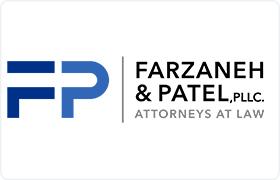Arcadia Estate Lawyer, Oklahoma
Sponsored Law Firm
-
 x
x

Click For More Info:
-
Farzaneh & Patel, PLLC.
1025 SW 4th St. Suite 201 Moore, OK 73160» view mapEstate Law Ready To Help Every Day
With 40 years of combined legal experience, Farzaneh and Patel Law Firm can handle anything from simple estate issues to the most complex estate cases.
800-853-7180
Daniel Loeliger
✓ VERIFIED *Status is reviewed annually. For latest information visit hereAccident & Injury, Estate, Wills & Probate, Trusts, Car Accident
Daniel Loeliger is a practicing lawyer in the state of Oklahoma. Mr. Loeliger received his J.D. from the University of Oklahoma.
Greg L. Taylor
✓ VERIFIED *Status is reviewed annually. For latest information visit hereLawsuit & Dispute, Business, Estate, Employment
Greg Taylor has extensive expertise in all aspects of the telecommunications industry. His focus is on contracts, litigation, mergers\acquistions, and... (more)
Cecil W. Heaton
Immigration, Estate, Adoption, Bankruptcy, Family Law
Status: In Good Standing *Status is reviewed annually. For latest information visit here
FREE CONSULTATION
CONTACTScott Thompson
Real Estate, Trusts, Family Law, Employment
Status: In Good Standing *Status is reviewed annually. For latest information visit here
George S. Freedman Jami Fenner
Real Estate, Wills & Probate, Family Law, Trusts
Status: In Good Standing *Status is reviewed annually. For latest information visit here
William F. Collins
Estate, Real Estate, Guardianships & Conservatorships, Wills & Probate
Status: In Good Standing *Status is reviewed annually. For latest information visit here
G. Kay Powers
Employment Discrimination, Adoption, Divorce, Estate Planning
Status: In Good Standing *Status is reviewed annually. For latest information visit here
Martha Victoria Tehan
Adoption, Bankruptcy & Debt, Bankruptcy, Estate Planning
Status: In Good Standing *Status is reviewed annually. For latest information visit here
Steven Michael Holden
Wills & Probate, Adoption, Personal Injury
Status: In Good Standing *Status is reviewed annually. For latest information visit here
John D. Mashburn
Accident & Injury, Bankruptcy & Debt, Estate, Lawsuit & Dispute
Status: In Good Standing *Status is reviewed annually. For latest information visit here
 Amir Farzaneh Moore, OK
Amir Farzaneh Moore, OK Practice AreasExpertise
Practice AreasExpertise

